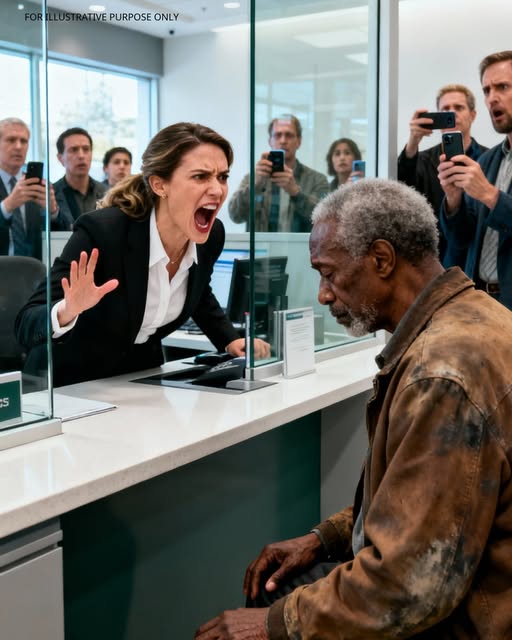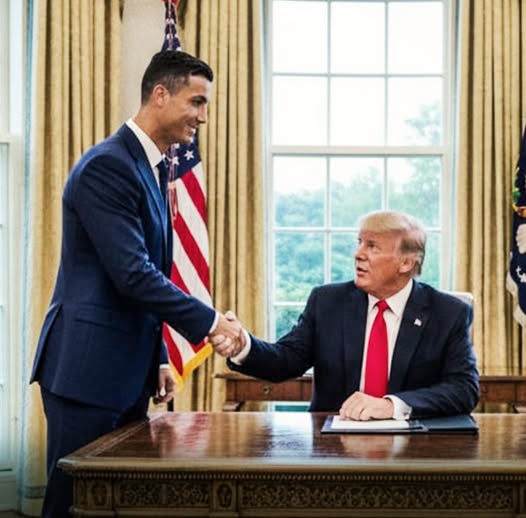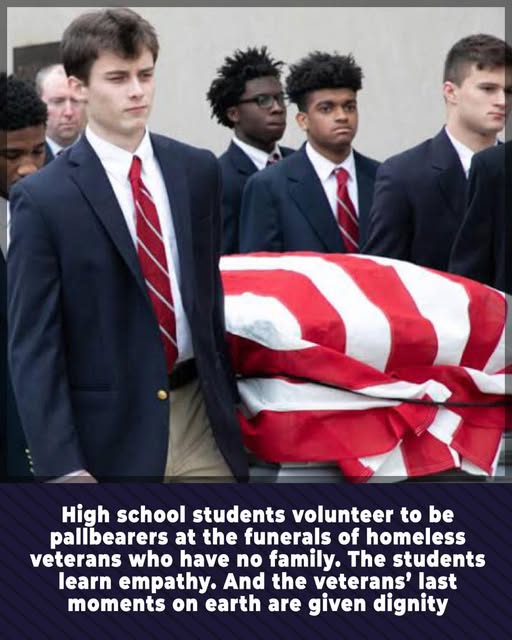The polished floors of the Franklin & West Bank shimmered beneath the morning light as Evelyn Carter, the youngest CEO in the bank’s century-long history, strode through the lobby. Her heels clicked with authority, echoing through the glass-and-marble space she ruled like a queen. She believed discipline was what kept a bank alive — and appearances were everything.
To Evelyn, a tailored suit meant reliability. A worn coat? Risk.
That morning, an elderly Black gentleman stepped up to one of the counters. His jacket was faded, his shoes slightly scuffed, but his posture carried quiet dignity. He offered a gentle smile as he handed over his ID.
“Good morning,” he said to the teller. “I’d like to withdraw fifty thousand dollars from my savings account, please.”
The teller blinked in surprise — that was no small amount. Evelyn, passing by, caught the exchange and stopped.
“Sir,” she said crisply, “this is our executive banking branch. Are you sure you’re in the right place?”
The old man nodded kindly. “Yes, ma’am. I’ve been with Franklin & West for over twenty years.”
Her expression tightened. “That’s unusual. We’ve had several fraud cases lately, and large withdrawals from walk-ins are… concerning. Perhaps you should visit a community branch. We can’t just hand out fifty thousand dollars without proper verification.”
The air in the room seemed to freeze. Every customer in the lobby turned to look. The old man lowered his eyes, embarrassed but still calm.
“I understand,” he murmured. “I can get more paperwork from my car.”
But when he returned, two security guards stood waiting beside Evelyn.
“Sir,” she said coldly, “I’m going to have to ask you to leave. Suspicious activity isn’t tolerated here.”
The man sighed, his voice soft. “You’re making a mistake.”
She didn’t answer. She simply turned to her staff and said, “That’s how you protect the institution.”
What Evelyn didn’t know was that this decision — her little show of authority — would cost her everything before the day was over.
By noon, Evelyn sat in her corner office overlooking Manhattan. She was preparing for the biggest meeting of her career: the signing of a $3.2 billion partnership with Jenkins Capital, a global investment firm that could double the bank’s international reach.
The deal had taken months to negotiate. The board was watching closely; this would be her legacy.
When her assistant’s voice came through the intercom — “Mr. Jenkins has arrived, ma’am” — Evelyn smoothed her blazer and stood.
“Perfect. Send him in.”
The door opened.
And the man who stepped inside was the same elderly gentleman she’d thrown out that morning.
Her throat went dry. “You— You’re—”
He smiled faintly. “Harold Jenkins. We met earlier, though you probably didn’t recognize me then.”
She felt the color drain from her face. “Mr. Jenkins, I… I didn’t realize—”
“Oh, I’m sure you didn’t,” he said, his tone calm but firm. “I stopped by your branch earlier to see how you treat regular customers — not investors, not CEOs — just people.”
He pulled out a small black notebook from his coat pocket. On one page, Evelyn could see neat handwriting describing their morning encounter. Word for word.
“My company doesn’t just invest in numbers, Ms. Carter,” he said quietly. “We invest in values — respect, integrity, empathy. Today, I saw none of those here.”
“Please, Mr. Jenkins,” she stammered, “this was a misunderstanding—”
“The misunderstanding,” he interrupted gently, “was thinking your bank deserved our trust.”
He closed the notebook, slipped it into his pocket, and extended his hand. She shook it with trembling fingers.
“Good day, Ms. Carter,” he said evenly. “We’ll be taking our business elsewhere.”
When the door closed behind him, Evelyn stood frozen, her reflection glaring back at her from the glass wall. Within minutes, her assistant burst in — pale, shaken. “The board’s on the line. The deal’s been canceled.”
By evening, every major financial outlet had picked up the story: Jenkins Capital Withdraws from Franklin & West Partnership. The bank’s shares plummeted. By the next morning, Evelyn’s name was trending — and not for her success.
A week later, the board forced her to resign. They called it “a leadership issue.” Reporters called it karma.
Meanwhile, Harold Jenkins quietly donated half a million dollars to a fund supporting financial literacy programs for senior citizens and underprivileged families — the very people Evelyn’s branch had turned away for years.
When asked about the incident, Harold simply said, “You can measure profit in dollars, but not character. Dignity doesn’t depend on your balance.”
Months later, Evelyn found herself at a small financial education center in Queens. She didn’t introduce herself as a former CEO. She just said she used to “work in banking.”
Every day, she helped seniors fill out forms, explained account fees, and guided people through saving plans. She listened — really listened — to the stories behind each face.
One afternoon, as she handed a woman a form, she overheard someone say, “Did you ever hear about that rich man who tested a banker’s heart? He made her see what real value means.”
Evelyn smiled faintly. She didn’t say a word. Some stories didn’t need her version of the truth.
Because this time, she finally understood — the richest lessons in life can’t be taught in boardrooms




